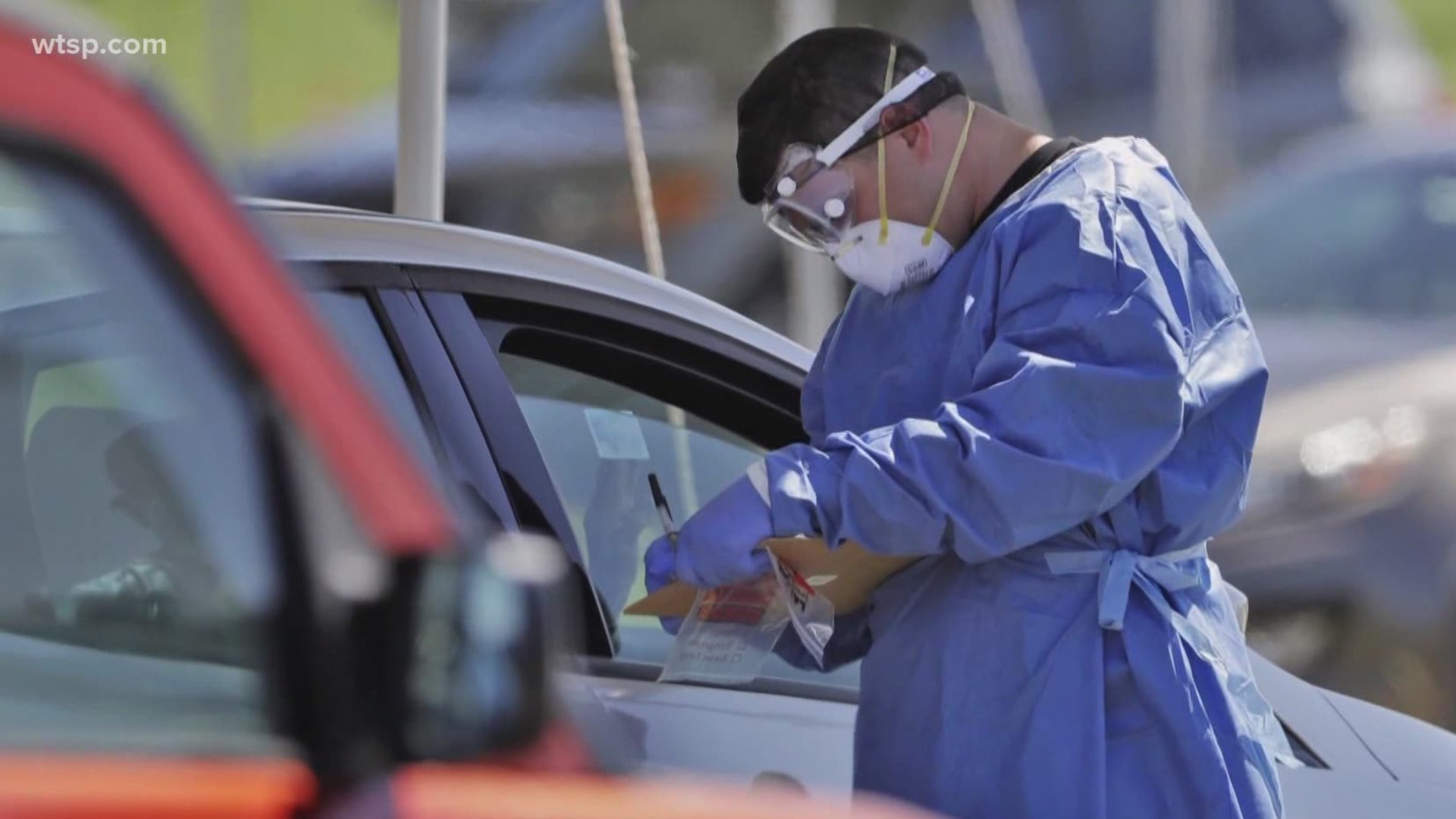TAMPA, Fla. — With more tests becoming available and more people getting tested, doctors are acknowledging that test results are not 100 percent accurate. There is a chance for a false positive – someone who doesn’t have the virus testing positive – and false negatives.
10Investigates has asked the Florida Department of Health if it’s tracking inaccurate results. While they have not responded to questions about the sensitivity of tests used in state-run labs or at public health testing locations, doctors spoke to the issue.
Dr. Jason Wilson with Tampa General Hospital says doctors are very aware of the chance for false negatives. He’s seen it happen within patients. He says there are two main reasons: the nasal swab wasn’t done correctly; it was not inserted deep enough to get a sample or it was done at the wrong time during the disease.
“If you’re sick and you go to get tested and the test is negative, but you still feel sick, you should still assume you either have this virus or another virus,” he said.
“We take clinical presentation, all the time, much more at face value than we do a test result.”
Testing is the number one defense at this point. It’s how we know just how prevalent COVID-19 is in our community which is why he and others want to see widespread testing even with less accurate tests like the antibody tests.
“Even if the sensitivity is not as high, to be able to do mass testing still gives us a better idea of what the population looks like because we can account and model for those types of things,” he said.
10Investigates’ Courtney Robinson asked: as testing becomes more widespread, as more people get tested, will false negatives create a false sense of security and allow the virus to spread?
Dr. Vincent DeGennaro helped create an antibody test that is now available at CarePath DX in Tampa. He acknowledges antibody tests have more room for false negative test results, but says these tests allow for rapid results and widespread testing which is key.
“Right now, we’re catching zero percent of the cases without symptoms because we’re not testing anybody. So, if we screen everybody, we’re going to catch about 50 percent of the cases in the first week. Yes, we’re going to miss about 50 percent of the cases but we just went from zero to 50 percent just by doing testing of the asymptomatic. I think it’s important to look from that perspective as to the benefit of them when used properly,” said DeGennaro.
What other people are reading right now:
- Disturbance near Bahamas could strengthen into season's first tropical system
- Need a COVID-19 test in Hernando County? Here's your chance
- Report: Company behind flawed unemployment website says Florida got what it asked for
- A lack of social distancing closes Naples beaches 10 days after reopening
- Disney World not accepting ticket reservations before July 1
- NY investigating more cases of kids' illness possibly linked to COVID-19
- Coronavirus in context: Florida COVID-19 cases explained in 5 charts
►Stay In the Know! Sign up now for the Brightside Blend Newsletter



